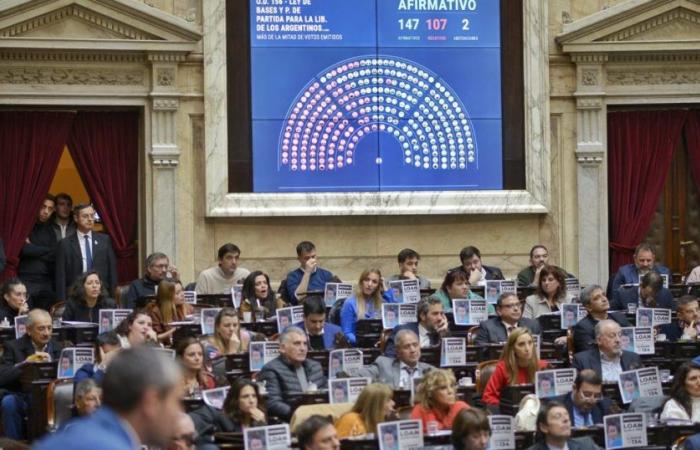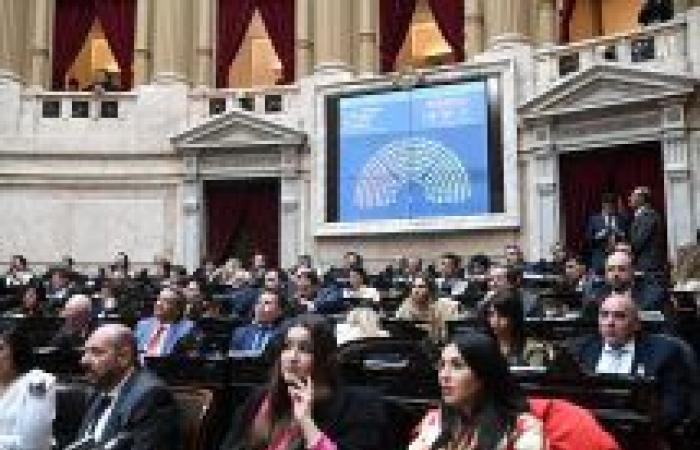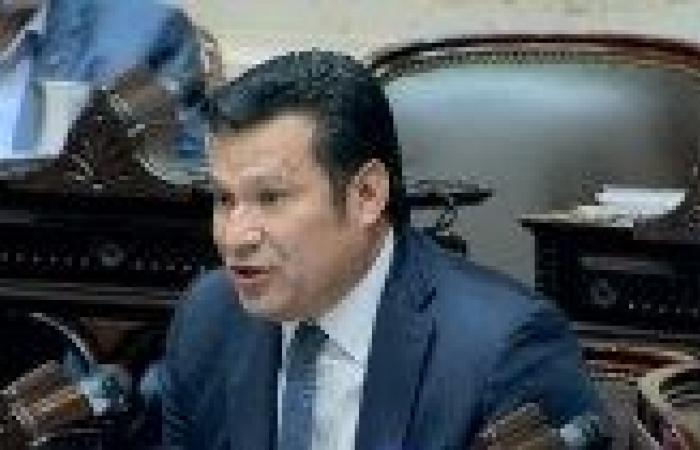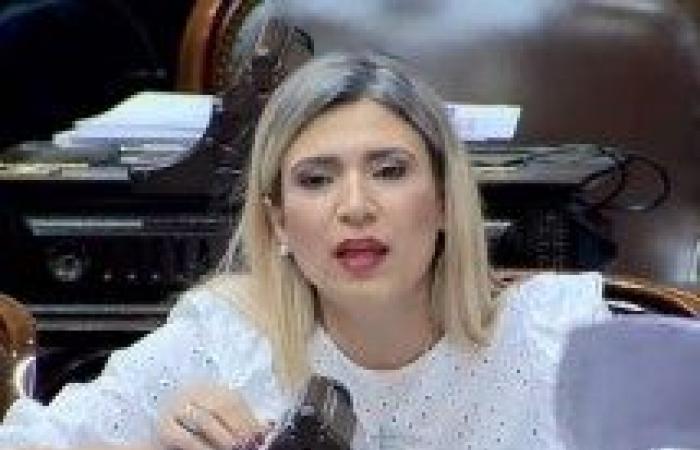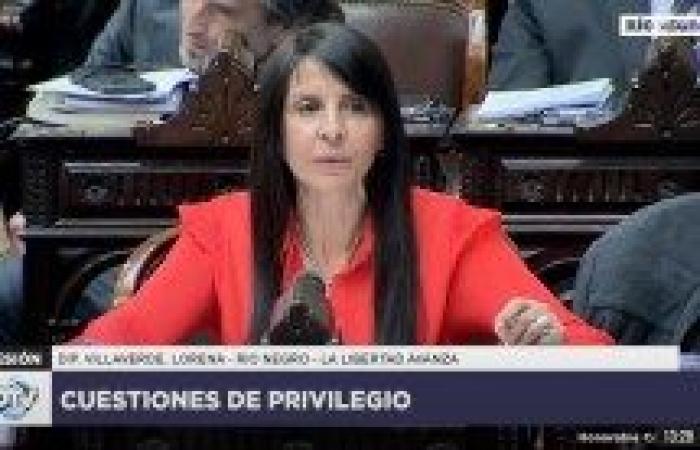200 days after Javier Milei took office and 184 days after the presentation of the original project, the ruling party achieved the final approval of the Bases Law and the fiscal packagewith the return of the income tax. In a session where there was no shortage of disagreements, La Libertad Avanza gave the green light to the first two projects of this administration, after a process with all kinds of political condiments that took six months.
The Law Baseswhich marked the debut of a minority ruling party, It was approved with the changes of the Senate and received 147 votes in favor from La Libertad Avanza, the PRO, the UCR, the bulk of Hacemos Coalición Federal, Innovación Federal, the Civic Coalition, the MID and other minority blocks; 107 votes against from Unión por la Patria, the left, socialism and Natalia De la Sota from Córdoba; and 2 abstentions (Mónica Frade from the CC and Sergio Acevedo from Santa Cruz).
“It is the most important reform in history, by size. If it is the most important in history, half a year doesn’t seem like much to me. Obviously it can always be improved and it would have been better if it were earlier, but this is not a law for the Government, it is a law for all Argentines. A new stage begins,” the president of the lower house highlighted earlier, Martin Menem.

The debate was monitored from Casa Rosada, while through Congress they paraded the general secretary of the Presidency, Karina Mileithe vice president Victoria Villarruelthe Chief of Staff, Guillermo Francosand his second, José Rolandi, who became the protagonist as a negotiator and editor of the fine print.
Bases Law pruned: companies left out of privatizations
In the Base Lawthe ruling party gathered a more comfortable majority than the last time, when it had obtained 142 votes, because radical dissidents joined in who had previously denied support, led by Facundo Manes.
In this way, the changes introduced by the Senate were accepted, among which It was decided to remove Aerolíneas Argentinas, the Post Office and public media from the list of privatizations.

That was the last pruning that the Government had to accept in exchange for votes, after a truly exhausting debate where It yielded a total of 426 items: They went from 664 of the original project, presented at the end of 2023 by the then minister Guillermo Francos in a box closed with a bow, to the final 238.
At the end of the debate, the president of the Kirchnerist bloc, Germán Martínez threw a chicane showing a box like the original and a much smaller one.
Fiscal package and restitution of Income Tax
In the fiscal package, meanwhile, the ruling party was able to insist on two chapters that were rejected in the Upper House: the Restitution of Income Tax (with 136 votes in favor, 116 against and 3 abstentions, from Frade, the radical Santa Cruz Roxana Reyes and the Peronist from Catamarca Silvana Ginocchio) and the Adjustments to Personal Assets (134 affirmative votes, 118 negative and 3 abstentions, from Nicolás Massot, Margarita Stolbizer and Frade).
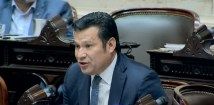
On the contrary, It was not possible to revive an article that urged the Executive Branch to propose a 2% cut in the State’s tax expenditure. Two-thirds of the votes were needed because the Senate overturned it with that majority, but in the House of Representatives 148 votes were obtained in favor and 107 against. The key was the rejection of Unión por la Patria.
He rest of the modifications to the tax chapter (such as the prohibition of entry of foreigners into money laundering and the limitation of the sectors that will be able to access the benefits of the Large Investment Incentive Regime) were accepted with 144 endorsements, 108 rejections and 3 abstentions.
Income Tax: the biggest challenge of La Libertad Avanza
The greatest challenge for La Libertad Avanza was Profits, a tax that Milei rejected as a deputy and now, as president, he wanted to reinstate to oxygenate the national and provincial coffers. Throughout the day, the issue generated tension because the counts showed a tight number, but the ruling party finally not only secured approval, but did so with four more votes than in the previous round, which had yielded 132 votes.
As in the Senate, the resistance of the Patagonians (region where the measure would have the greatest impact on salaries) it made itself felt.
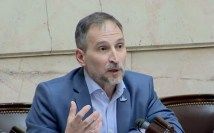
“As a trade unionist from Chubut, I cannot allow oil workers to pay income tax. I cannot allow it under any circumstances. This tax will greatly harm the social peace of the oil basins. We will fight it: As soon as we have the first profit discount we are going to stop all activity in the country”, threatened the Hacemos deputy Jorge Ávila, who answers to Governor Ignacio Torres.
Added to this was a group of radicals without obedience to governors, who at the end of April supported the return of the tax but now refused to vote for it. These legislators told Francos, in a meeting held this Wednesday, the discomfort of voting for Income Tax when the municipalities governed by the radicalism would not be receiving funds from their respective governorates.
This was the proposal that Karina Banfi (Buenos Aires), Pablo Cervi (Neuquén), Francisco Monti (Catamarca), Gabriela Brouwer de Koning (Córdoba) and Roxana Reyes (Santa Cruz), among others, took to the Casa Rosada.
Monti was one of those who urged his Peronist peers, who respond to Governor Raúl Jalil, to contribute to the return of Ganancias, since the first time they only guaranteed one positive vote and three abstentions. “I want to ask the deputies of my province to wear the Catamarca shirt to recover the health of public finances,” encouraged the deputy in the room.
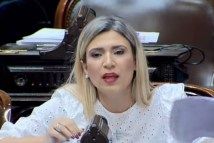
In the same sense, it was expressed, at the close of the debate, Miguel Pichetto. “The governors of Unión por la Patria must be very attentive when looking at this process,” ironically stated the head of Hacemos, who He staunchly defended the return of Profits and criticized the senators, representatives of the provinces, for having turned the chapter around.
The debate in The session had two marked edges. One was the constitutional discussion on the possibility of reviving rejected articles in another Chamber. “Beyond appearances, there is no genuine constitutional debate here: a constitutional interpretation is being used to cover up political interests, a game of tug-of-war, confusion and conceptual stretching,” denounced the libertarian José Luis Espert after an extensive argument in favor.
He Another axis of the debate was the impact that the return of Profits and the changes in Personal Property will have. From Unión por la Patria, a deputy of the governor of La Pampa, Sergio Ziliotto, Ariel Rauschenberger, warned: “They want us to believe that the fiscal package benefits the provinces, that the governors are asking for it, that this will contribute to improving the fiscal situation and that it will increase revenue sharing, but it is an absolute fallacy.”
According to the legislator, “The tax package not only does not increase tax revenue, but it also complicates the finances of the provinces, the nation and the municipalities. Restoring profits to workers and reducing personal property for the most powerful affects the fiscal surplus, which is fictitious, but a surplus nonetheless.”
There were also opinions for and against the RIGI, and the Cordoba native Carlos Gutiérrez (Hacemos) took the opportunity to demand a nod to the countryside: “The investments proposed in the context of the RIGI are welcome, but they must be complemented. The RIGI symbolized by the Vaca Muerta must be complemented by the ‘living cow’, which has suffered the plundering policies of Kirchnerism for 20 years and is one of the most dynamic subjects of capitalist development.”
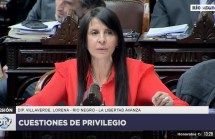
On the contrary, The one who dedicated himself to criticizing the RIGI was Máximo Kirchner, which broke the silence in the room. He warned that the regime is designed for 30 years and “far exceeds the mandate of the current president.” “I hope we all understand that the RIGI is too much, that we have to have a strategic view to not be like the Congo,” he stressed.
Over the course of six months, the debate on the Base Law went through all kinds of vicissitudes, from complaints of vote “buying” and supposed irregularities in parliamentary proceedings even an ejected pro-government bloc leader (Oscar Zago, who was replaced by Gabriel Bornoroni) and the resignation of Nicolás Posse as chief of staff, to which was added the Frustrated May Pact due to obstacles in the Senate debate.

